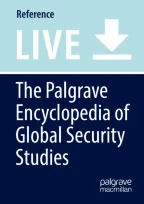
Interpersonal and other forms of conflicts are essential, natural, and unavoidable human phenomenon in both homogeneous and diverse societies as daily life increasingly brings individuals with different backgrounds, cultures, values, morals, beliefs, ethics, personalities, and objectives into contact with one another (Ghaffar 2009; Turnuklu et al. 2009). This diversity often leads to conflicting situations by and between individuals, organizations, entities, and nation states. In the context of conflict, Doğan (2016) points out that the occurrence of conflicts in every environment in which humans are present appears to be quite normal. In fact, Doğan (2016) posits that the genesis of conflict is equivalent to the history of humanity. Instructively, just as conflicts have been in existence for centuries, so too are attempts at their resolution. But what is conflict and what is conflict resolution?